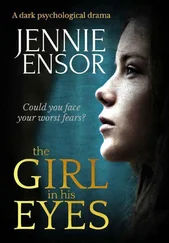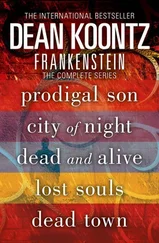Of firm but pliable rubber, custom-formed to his disfigured foot, a shoe insert filled the void left by his missing toe. This simple aid ensured that virtually all footwear was comfortable, and by November, Junior walked with no discernible limp.
When he reported for a physical and a reassessment of his draft classification, on Wednesday, December 15, he left the insert in his hitching shoe; however, he limped like old Walter Brennan, the actor, hitching around the ranch in The Real McCoys.
The Selective Service physician quickly declared Junior to be maimed and unfit. Quietly but with passion, Junior pleaded for a chance to prove his value to the armed forces, but the examiner was unmoved by patriotism, interested only in keeping the cattle line of other potential draftees moving past him at a steady pace.
To celebrate, Junior went to a gallery and purchased the second piece of art in his collection. Not sculpture this time: a painting.
Although not quite as young as Bavol Poriferan, this artist was equally adored by critics and widely regarded as a genius. He went by a single and mysterious name, Sklent, and in the publicity photo of him that was posted in the gallery, he looked dangerous.
The masterpiece that Junior purchased was small, a sixteen-inch-square canvas, but it cost twenty-seven hundred dollars. The entire picture-titled The Cancer Lurks Unseen, Version 1-was flat black, except for a small gnarled mass, bile-green and pus-yellow, in the upper-right quadrant. Worth every penny.
He felt so happy, he was improving every day in every way, life just got better-but then something happened that was worse than the shooting. It ruined his day, his week, the rest of his year.
After arranging to have the gallery deliver his acquisition, Junior stopped in a nearby diner for lunch. The place specialized in superb heartland food: meat loaf, fried chicken, macaroni and cheese.
Sitting on a stool at the counter, he ordered a cheeseburger, coleslaw, french fries, and a cherry Coke.
Another of Junior's self-improvement projects, since moving to California, was to become a knowledgeable gourmet, also a connoisseur of fine wines. San Francisco was the perfect university for this education, because it offered innumerable world-class restaurants in every imaginable ethnic variety.
Once in a while, however, he reverted to his roots, to the food that gave him comfort. Thus, the cheeseburger and its decadent accoutrements.
He got everything he ordered-full value, and more. When he lifted off the top of the bun to squeeze mustard onto the burger, he discovered a shiny quarter pressed into the half-melted cheese.
Spinning off the stool, the bun cap in one hand and the mustard dispenser clutched in the other, Junior surveyed the long narrow diner. Looking for the maniac cop. The dead maniac cop. He half expected to see Thomas Vanadium: head crusted in blood, face bashed to pulp, caked in quarry silt, and dripping water as though he'd climbed out of his Studebaker coffin just minutes ago.
Although only half the stools at the counter were occupied, and none of those close to Junior, customers were seated in most of the booths. Some had their backs to him, and three were about Vanadium's size.
He hurried the length of the diner, pushing past waitresses, checking out all three of the possibilities, but of course, none of them was the dead detective—or anyone else Junior had ever seen before. He was looking for—what?—a ghost, but vengeful ghosts didn't sit down to a meat-loaf lunch in the middle of a hauntin I Junior didn't believe in ghosts, anyway. He believed in flesh and bone, stone and mortar, money and power, himself and the future.
This was not a ghost. This was not a walking dead man. This was something else, but until he knew what it was, who it was, the only person he could possibly look for was Vanadium.
Each booth was at a large window, and each window provided a view of the street. Vanadium wasn't out there, watching from the sidewalk, either: no glimpse of his pan-flat face shining in the December sun.
With everyone in the diner now aware of Junior, with every head turned toward him and with every wary eye tracking him, he dropped the bun cap and the mustard dispenser on the floor. Barging through the swinging gate at the end of the lunch counter, he entered the narrow work area behind it.
He shouldered past two counter waitresses, past the short-order cook who was working eggs and burgers and bacon on the open griddle and grill. Whatever expression wrenched Junior's face, it must have been intimidating, for without protest but with walleyed alarm, the employees squeezed aside to let him pass.
Spinning off the stool, he had also spun out of control. Second by second, twin storms of anger and fear whirled stronger within him.
He knew that he needed to get a grip on himself. But he could not keep his breathing slow and deep, couldn't remember any of Zedd's other foolproof methods of self-control, couldn't recall a single useful meditative technique.
When he passed by his own lunch plate on the counter and again saw the quarter gleaming in the cheese, he spat out a curse.
And here, now, into the kitchen through a door with a porthole in the center. Into sizzle and clatter, into clouds of fried-onion fumes and the mouthwatering aromas of chicken fat and shoestring potatoes turning golden in deep wells of boiling cooking oil.
Kitchen staff. All men. Some looked up in surprise; others were oblivious of him. He stalked the cramped work aisles, eyes watering from the fragrant steam and the heat, seeking Vanadium, an answer.
Junior found no answers before the owner of the diner blocked him from proceeding out of the kitchen into the storeroom and the service alley beyond. Simultaneously sweating and chilled, Junior cursed him, and the confrontation became ugly.
The owner's attitude softened somewhat with Junior's reference to the quarter, and softened even further when together they returned to the counter to see the proof in the cheese. He went from righteous anger to abject apology.
Junior didn't want an apology. The offer of a free lunch-or an entire week of lunches-didn't charm a smile from him. He had no interest in taking home a free apple pie.
He wanted an explanation, but no one could give him the one that he needed, because nobody but he himself knew the significance and symbolism of the quarter.
Unfed and unenlightened, he left the diner.
Walking away, he was aware of the many faces at the windows, all as stupid as the faces of cud-chewing cows. He had given them something to talk about when they returned from lunch to their shops and offices. He'd reduced himself to an object of amusement for strangers, had briefly become one of the city's army of eccentrics.
His behavior appalled him.
During the walk home: slow and deep, breathing slow and deep, moving not at a brisk clip, but strolling, trying to let the tension slide away, striving to focus on good things like his full exemption from military service and his purchase of the Sklent painting.
San Francisco's pre-Christmas cheer had deserted it. The glow and glitter of the season had given way to a mood as dark and ominous as The Cancer Lurks Unseen, Version 1.
By the time he arrived at his apartment, Junior could think of no better action to take, so he phoned Simon Magusson, his attorney in Spruce Hills.
He used the kitchen phone, at the comer secretary. The blood had been cleaned up long ago, of course, and the minor damage from the ricocheting bullet had been repaired.
Strangely, as sometimes happened in this room, his missing toe itched. There was no point in removing his shoe and sock to scratch the stump, because that would provide no relief. Curiously, the itch was in the phantom toe itself, where it could never be scratched.
Читать дальше











